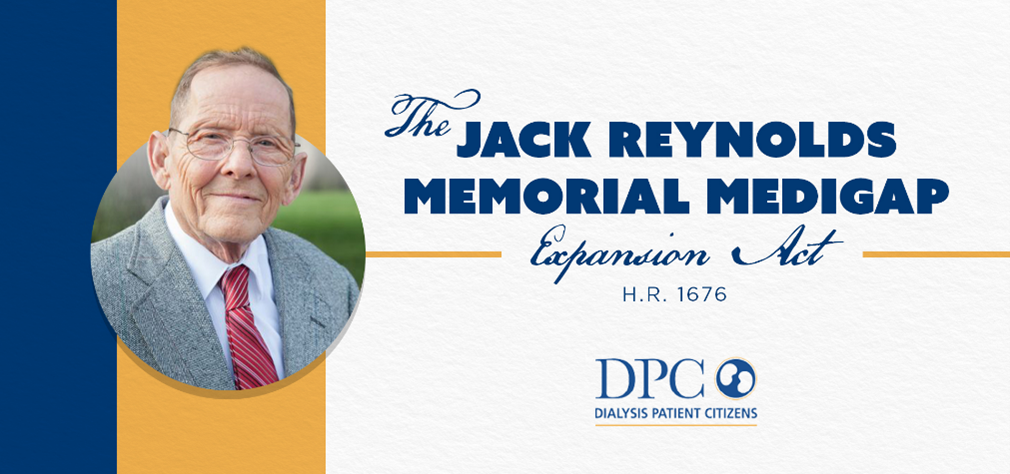By Megan Hashbarger, Vice President of Government Relations
Earlier this year, The Jack Reynolds Memorial Medigap Expansion Act (H.R. 1676) was reintroduced by Congresswoman Cynthia Axne (D-IA-03) to ensure all End Stage Renal Disease (ESRD) patients have access to Medigap. This Congress, we were very pleased she was joined by Congresswoman Jaime Herrera Beutler (R-WA-03) in leading this effort. Ensuring all ESRD patients have access to Medigap is extremely important to help patients cover the high costs of care and to improve their access to transplantation.
Medigap policies are standardized, private insurance policies that cover costs not covered by Medicare, such as copayments and deductibles. Current federal law does not specify that all Medicare beneficiaries, specifically those under the age of 65 such as many dialysis patients, have access to Medigap to cover their substantial out-of-pocket costs. However, it does guarantee that those over 65 have access to Medigap. Because of this uncertainty, some states allow patients under 65 access to Medigap while others do not, leaving dialysis patients being treated differently based on where they live.
This is not only an issue because access to Medigap will help patients improve their financial security, it is also an issue because Medigap will improve access to transplantation. Without Medigap, many patients do not have the 20% coinsurance payment needed in order to receive a transplant. Unfortunately, in 2019, (prior to the ongoing pandemic) 5,207 patients were removed from the transplant list for reasons of death. Access to Medigap and thus transplantation could have saved many of these lives.
While making this fix seems commonsense, in the past, some health policy professionals, have had concerns this could be a significant cost to Medicare. However, Health Management Associates recently released a report using Medicare cost data from 2017-2019 that estimated extending Medigap coverage to all ESRD patients under the age of 65 would only add about $50 million in federal expenditures over the next 10 years. Now, this really is commonsense.
Jack Reynolds knew just how important access to Medigap was. He was the longest surviving dialysis patient in the U.S. (45 years) and often talked about how fortunate he was to have a Medigap plan to help cover his health care costs. Jack was also our long-time Board President and passionate advocate on improving the lives of dialysis patients. H.R. 1676 – The Jack Reynolds Memorial Medigap Expansion Act is a wonderful tribute to Jack’s memory as it would do what he was most passionate about – improve the lives of dialysis patients. We hope Congress will take swift action to pass this important legislation.
Please contact your Member of Congress and urge them to join Reps. Axne and Herrera Beutler by taking action at www.kidneyaction.org/medigap.




